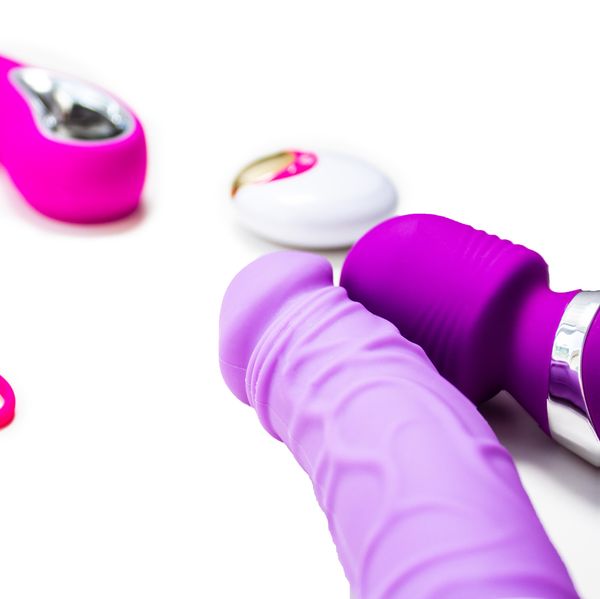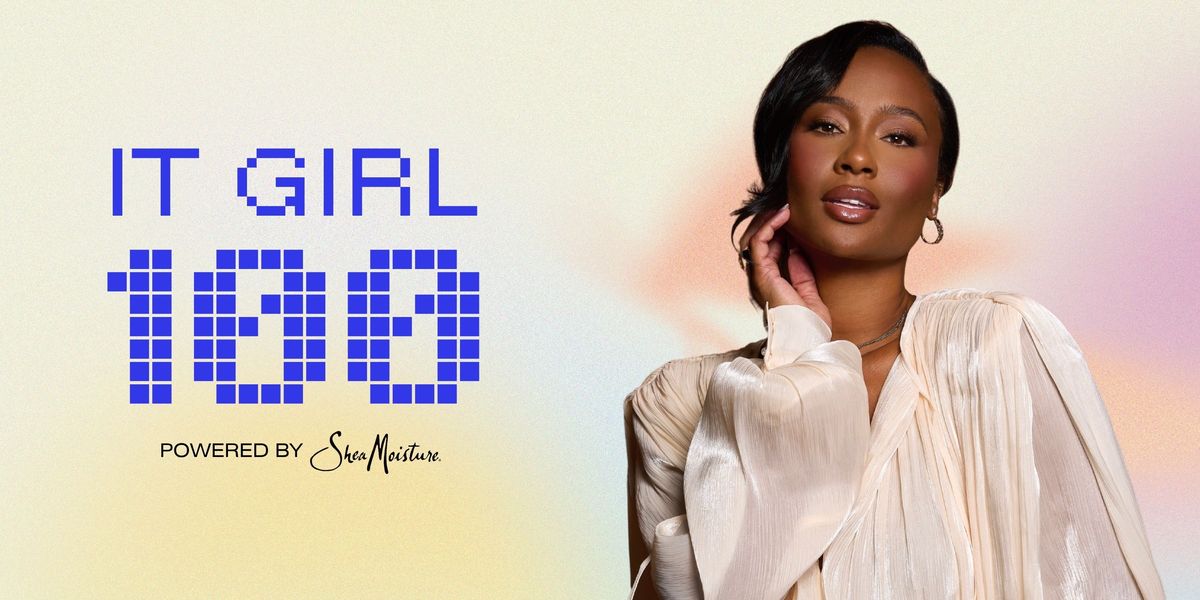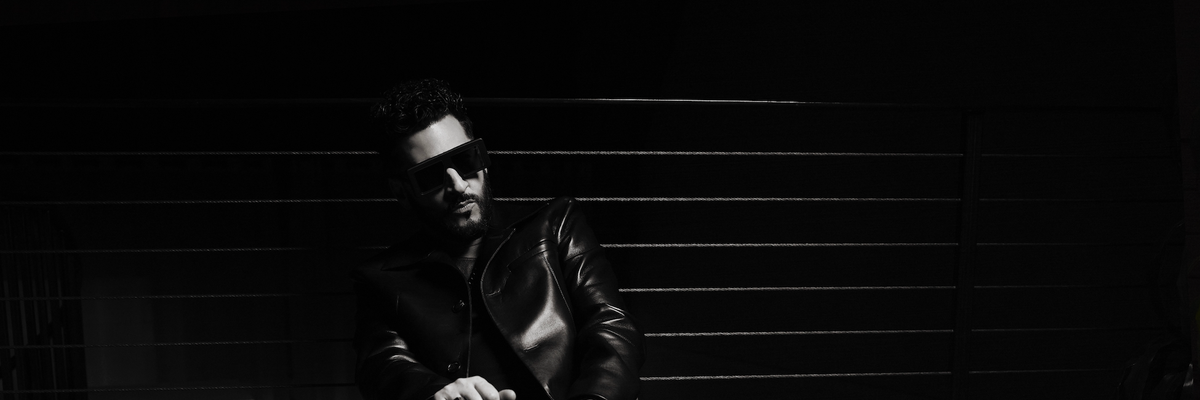
I got my nails done for the first time in years while I was in New Orleans for Essence Festival at M.A.D. Nails (owned by black girl boss, Morgan Dixon), and realized that I forgot how much I love getting them done.
The champagne. The girl talk. My nails not looking like a Freddie Krueger movie. The benefits are endless.
After my appointment, I started thinking about all of the colors I wanted to try before the summer's end. So, I started looking at some of the nail industry's most popular brands and came up with this list! It's filled with yellows (because you know, yellow was made to be worn by black women), corals, a little sparkle, orangey-reds; and brands that are 7- and 8-free (non-toxic).
*This list is specially curated by the xoNecole team and some links are affiliate links. If you purchase an item from an affiliate link, xoNecole might earn a small commission.
Mischo Beauty Diana Creme Nail Polish
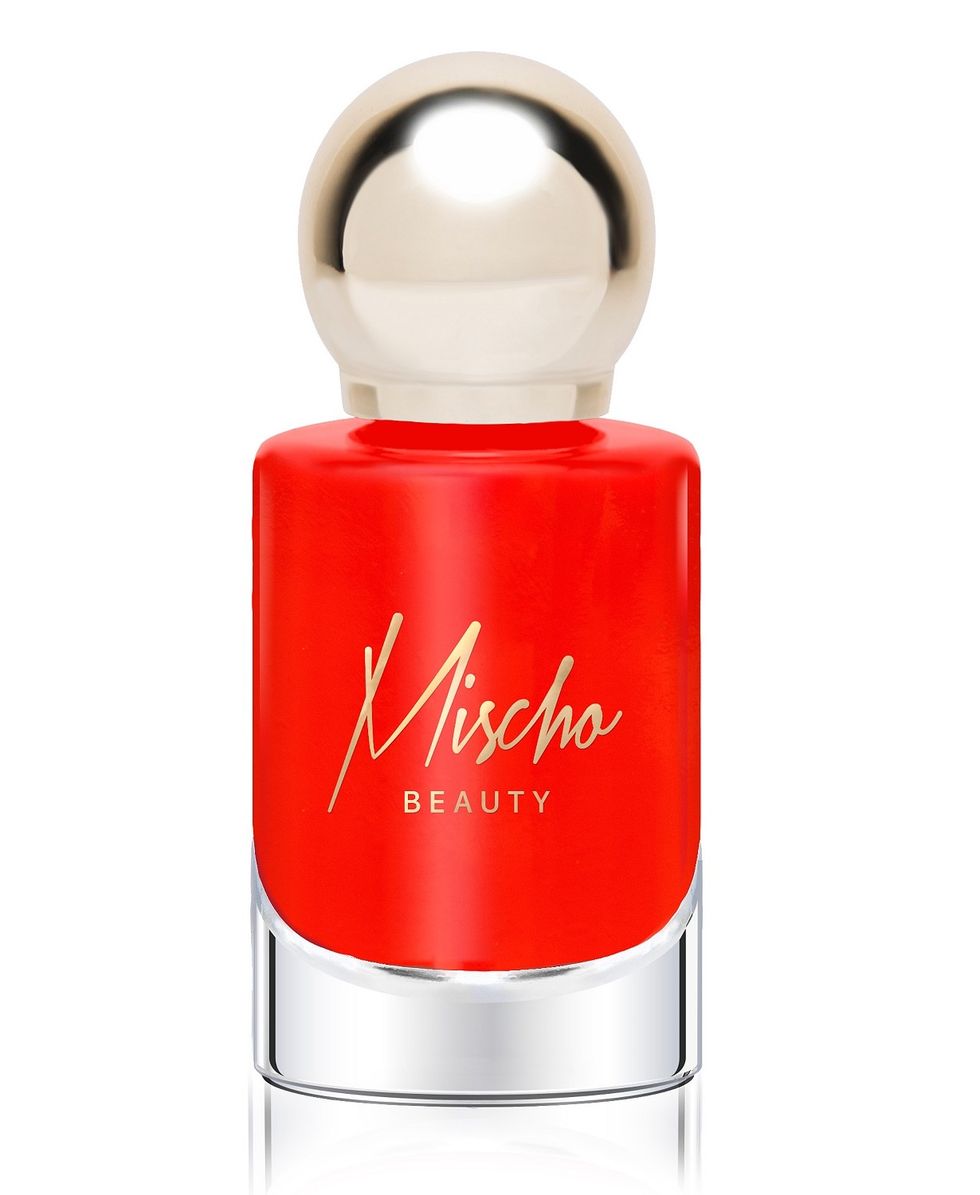
Macys
Not quite a red, and not an orange, this nail color is excellent for someone who might want to take a chance outside of their signature red polish — and an added bonus is this brand is black-owned.
Zoya Austine
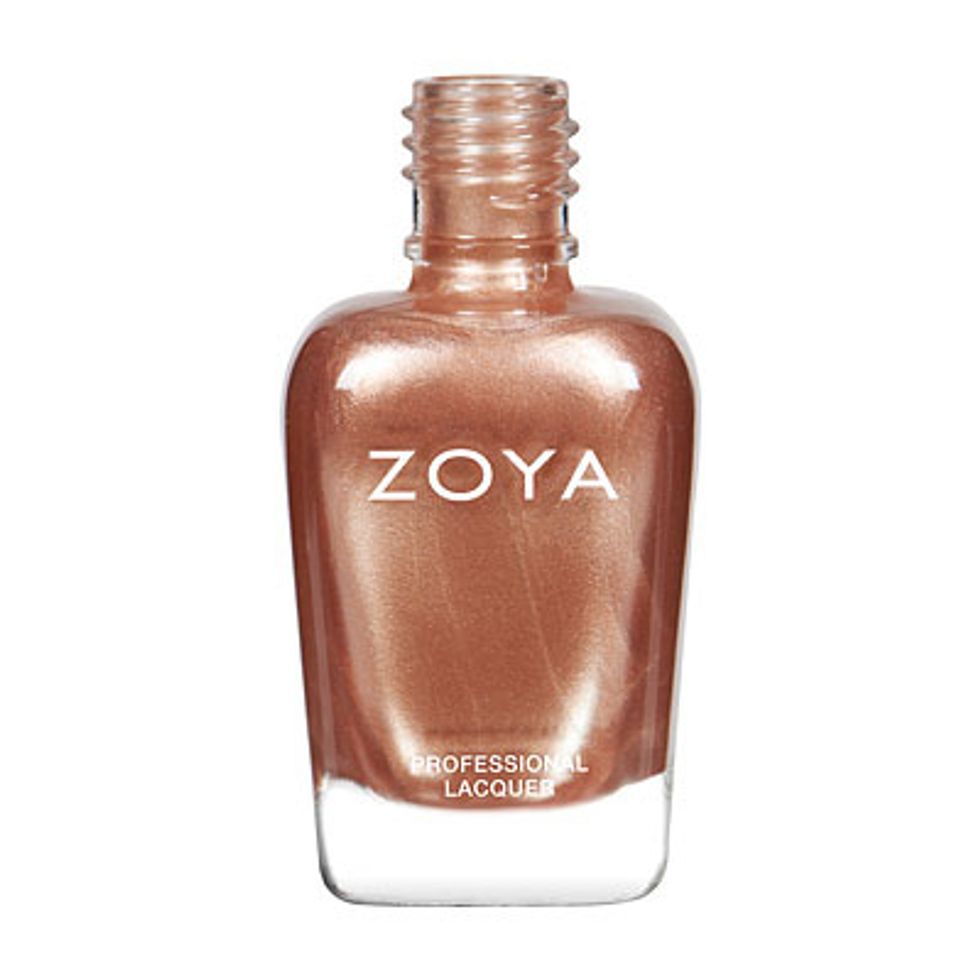
Amazon
ZOYA's line has over 400 color options, so it was difficult to settle on one color choice to try this summer. I went with the golden 'Austine' because honestly, gold and sparkle is never a wrong choice (well, in my opinion).
25th and June Magical as F*ck
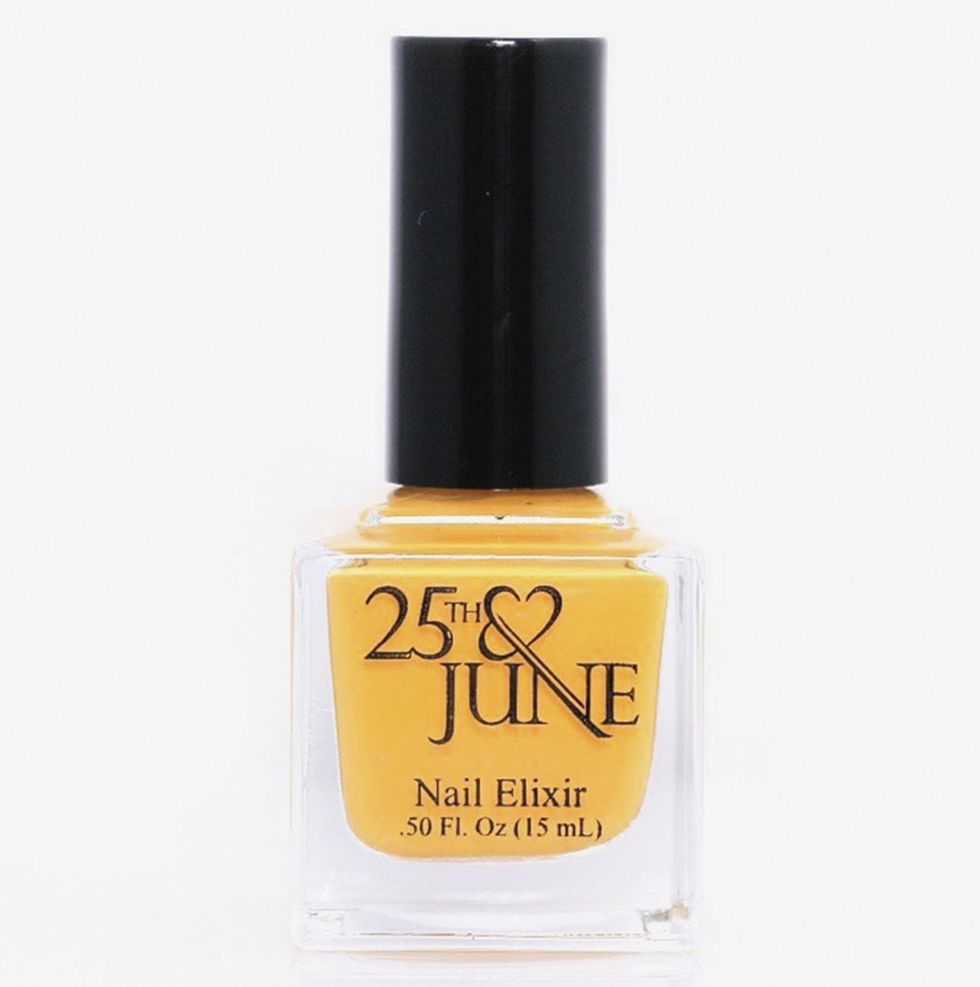
25th and June
I am a longtime fan of 25th and June (which is black-owned), the vegan, 7-free indie brand has a bold yellow color that would look great as the primary color of your mani, or you could opt for a sunshine-inspired design.
Deborah Lippmann Above The Clouds
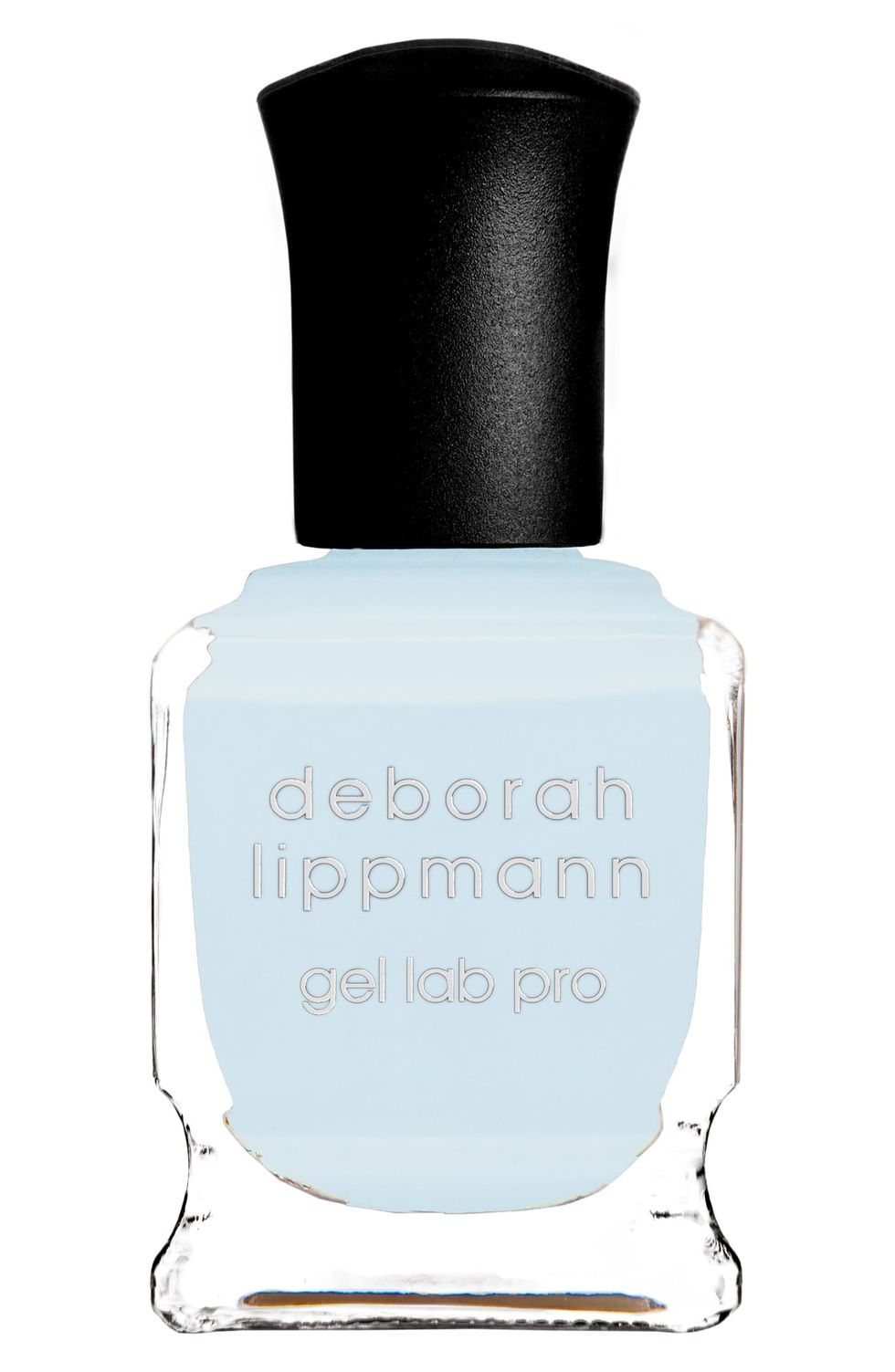
Nordstrom
Made with ingredients like evening primrose, biotin, and green tea extract, this blue polish will add subtle color to your beach-ready mani while keeping your nails strong and healthy.
Static Nails Mocha Pop-On Reusable Manicure Set
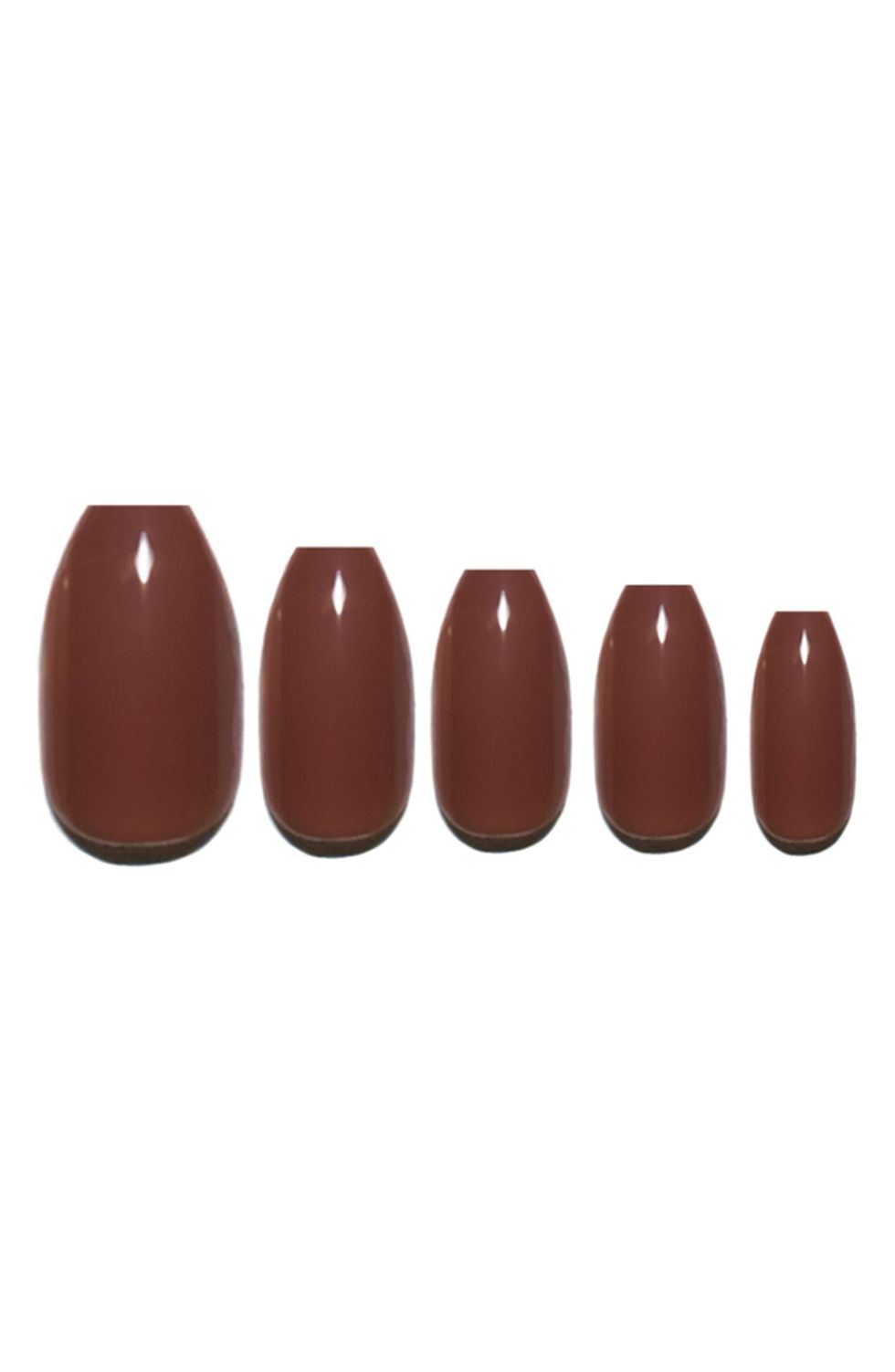
Nordstrom
Press on nails are back in a big way — even Beyoncé wears them. Static's mocha hued pop-on's are a nice summer nude to compliment your tan lines and they're reusable.
Butter London Trout Pout Patent Shine 10X Nail Lacquer
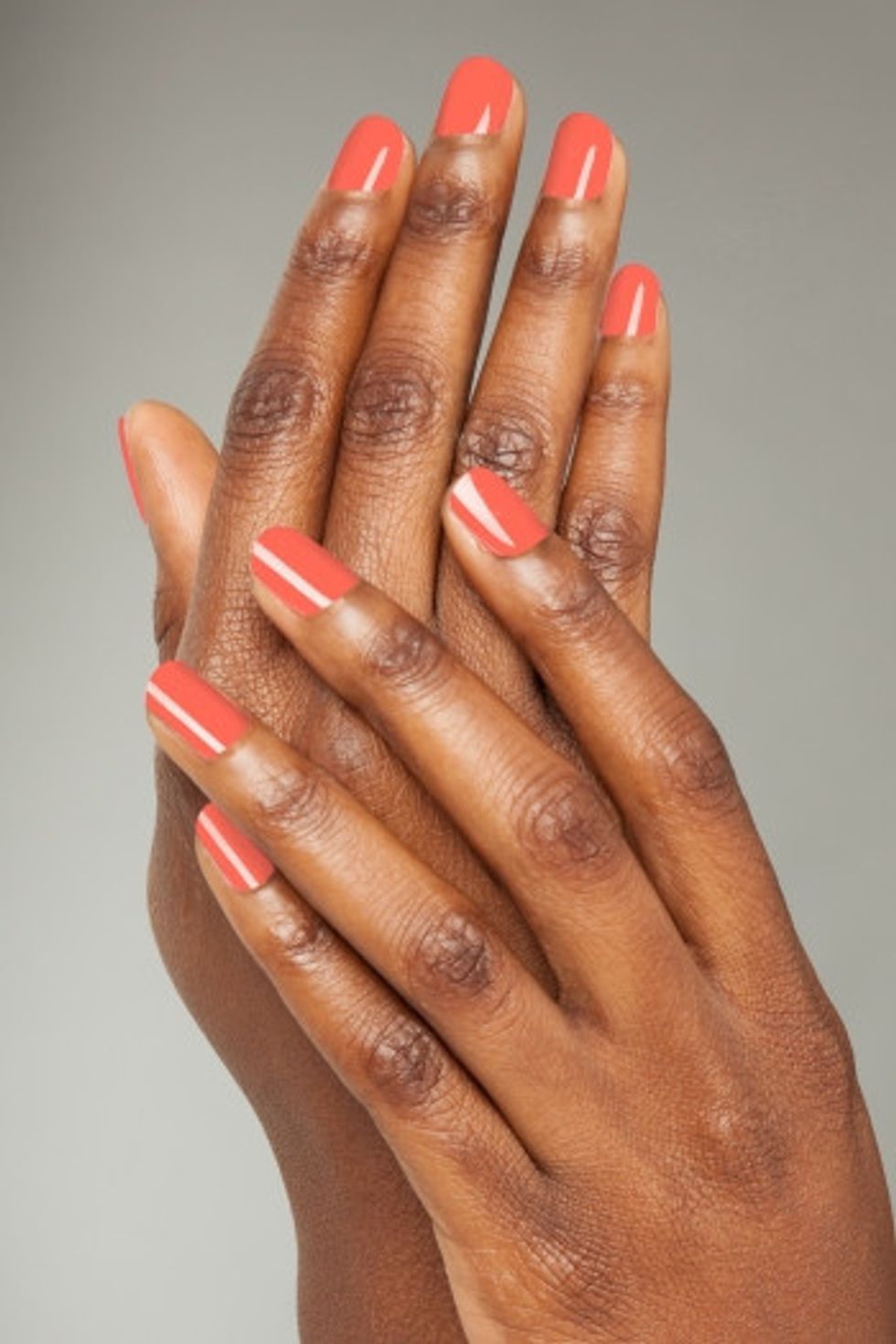
I know there is already an orange-red on the list, but I thought adding a lighter, coral color would be a good idea. If a nail polish formulated without chemicals like formaldehyde, DBP, toluen, camphor is important to you — Butter London is 8-free. Meaning the polish is free of all eight ingredients (tphp, ethyl tosylamid, and xylene) that studies show affect women's hormones.
Olive and June HD Polish with Cherry On Top Decals
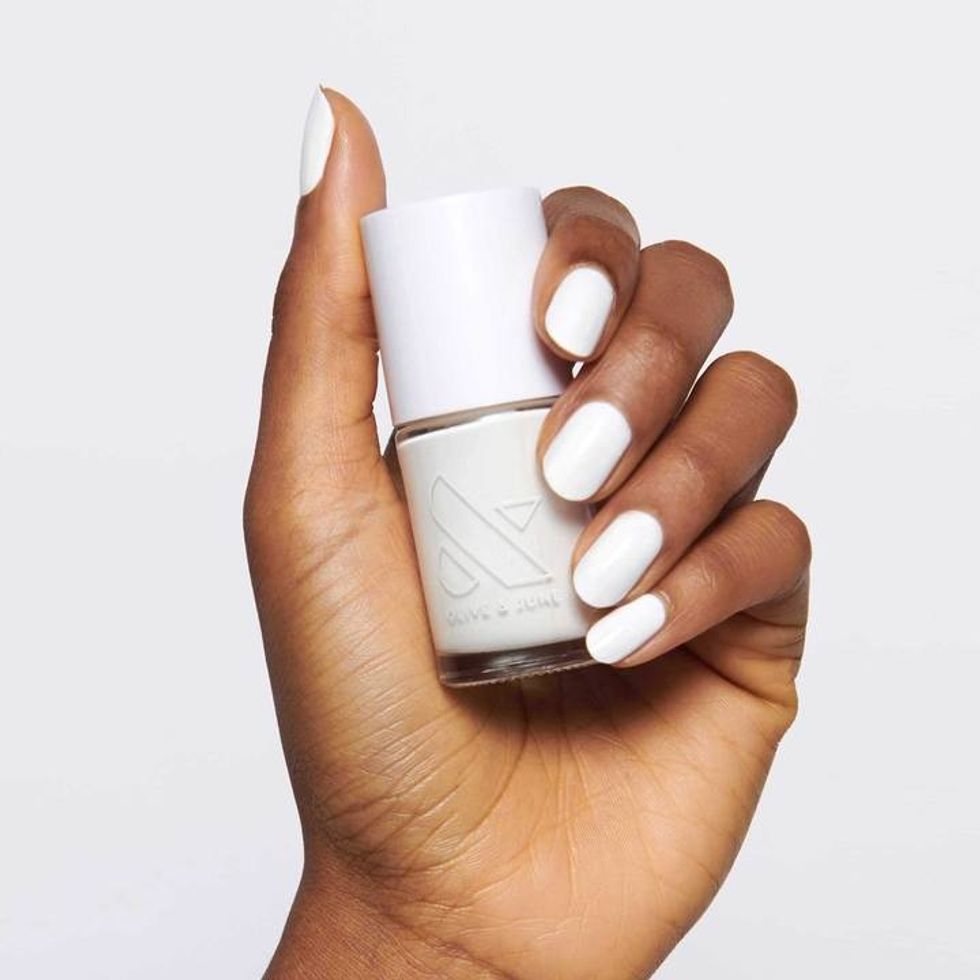
Olive and June
Olive and June is an LA-based nail brand that is known for its whimsical designs and bright color palette. White nails are a warm-weather classic, and these little ice cream decals add a "cherry on top."
OPI To The Finish Lime!
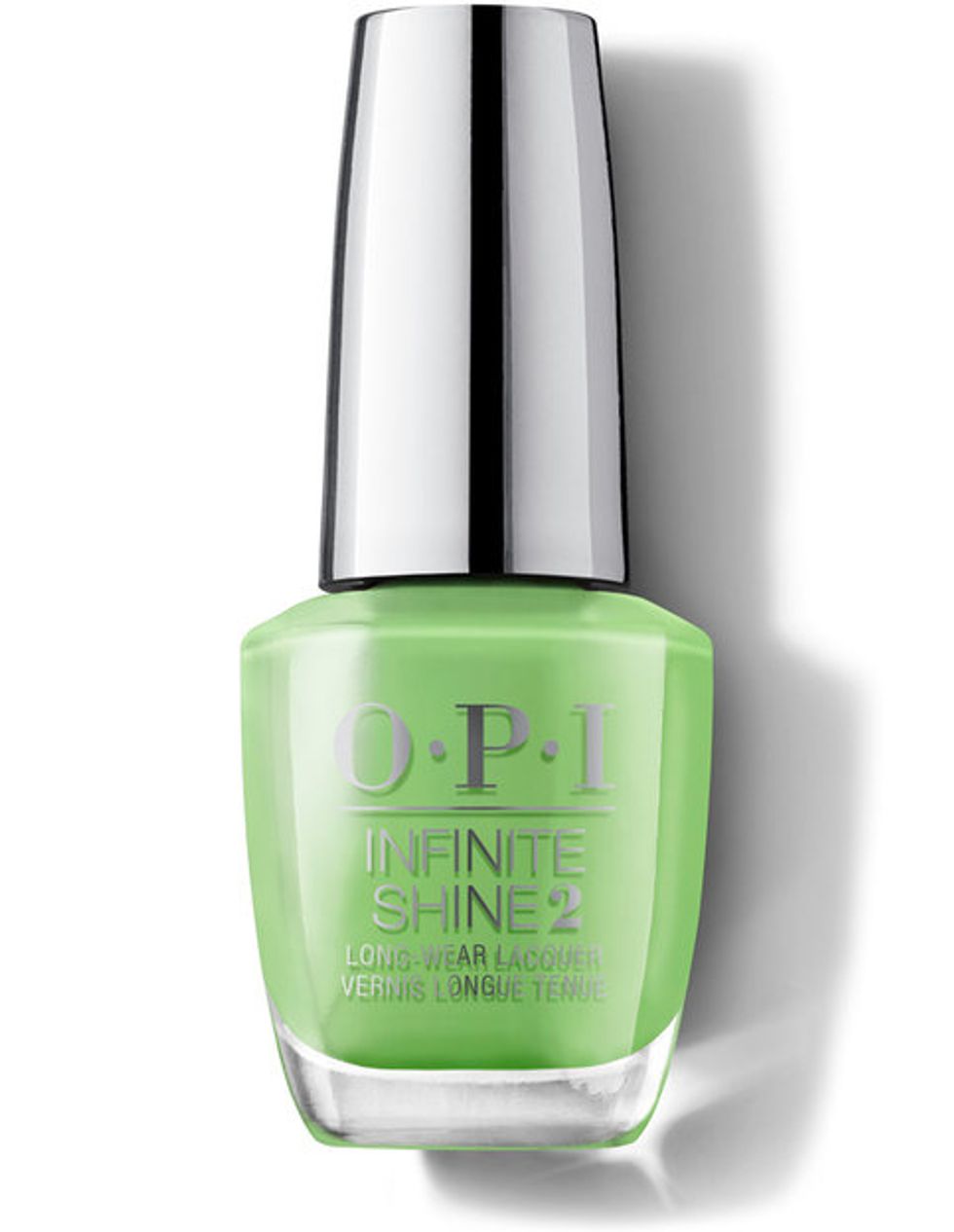
OPI
If you're not ready to take the plunge to wear a bright green on your fingers, take a little risk and rock it on your toes.
Essie Tangoed In Love
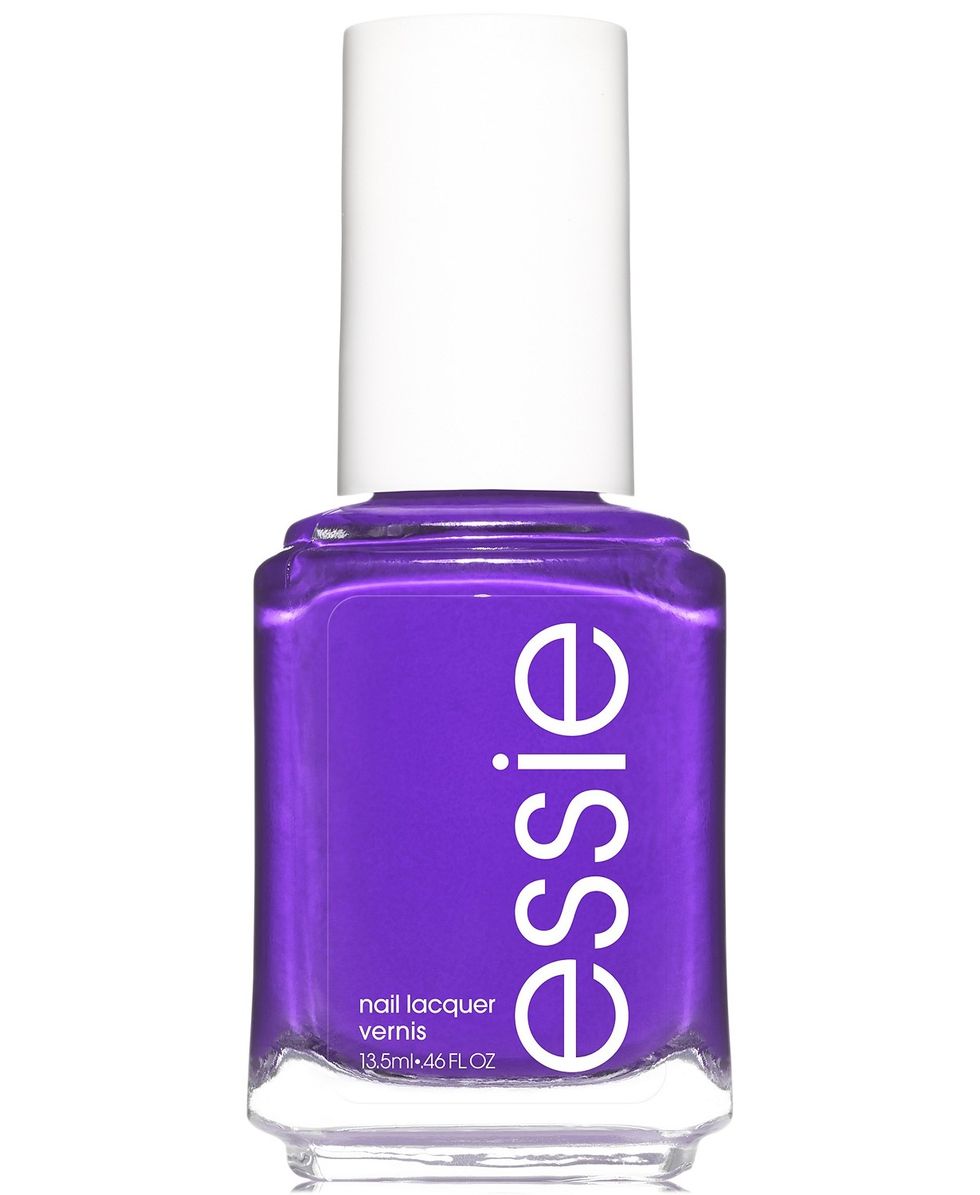
Essie
This purple color might be a bit of a wild card, but the jewel-toned hue will make your melanin skin pop.
Want more stories like this? Sign up for our newsletter here to receive our latest articles and news straight to your inbox.
In A 90s Kind Of World, Tortoiseshell Nails Are Making A Comeback
How Nettie Davis Made It As A Celebrity Nail Artist
All The Summer Nail Trends You Need In Your Life Right Now
- Spring Nail Trend To Try - Rainbow Nails - xoNecole ›
- 5 Hot Summer Nail Trends To Try ASAP - xoNecole: Lifestyle, Culture, Love, Wellness ›
- 15 Prettiest Summer Nail Colors of 2019 - Fun Nail Polish Shades ›
- Seven Nail Polish Colors To Try This Summer | Alyson Haley ›
- Best Summer Nail Colors of 2018 - New Summer Nail Polish Trends ›
- 20 Best Summer 2018 Nail Polish Color Trends | Teen Vogue ›
- 12 Best Summer Nail Polish Colors - Trendy Nail Shades for ... ›
- 5 Trending Nail Polish Shades to Try Before the End of Summer 2018 ›
- Watermelon nails are the refreshingly fruity mani you need to try ... ›
- The Best Bright Nail Polish Colors To Try Before The End Of Summer ›
- Watermelon Nails Are The Juicy Summer Manicure You Need To ... ›
Exclusive: Viral It Girl Kayla Nicole Is Reclaiming The Mic—And The Narrative
It’s nice to have a podcast when you’re constantly trending online. One week after setting timelines ablaze on Halloween, Kayla Nicole released an episode of her Dear Media pop culture podcast, The Pre-Game, where she took listeners behind the scenes of her viral costume.
The 34-year-old had been torn between dressing up as Beyoncé or Toni Braxton, she says in the episode. She couldn’t decide which version of Bey she’d be, though. Two days before the holiday, she locked in her choice, filming a short recreation of Braxton’s “He Wasn’t Man Enough for Me” music video that has since garnered nearly 6.5M views on TikTok.
Kayla Nicole says she wore a dress that was once worn by Braxton herself for the Halloween costume. “It’s not a secret Toni is more on the petite side. I’m obsessed with all 5’2” of her,” she tells xoNecole via email. “But I’m 5’10'' and not missing any meals, honey, so to my surprise, when I got the dress and it actually fit, I knew it was destiny.”
The episode was the perfect way for the multihyphenate to take control of her own narrative. By addressing the viral moment on her own platform, she was able to stir the conversation and keep the focus on her adoration for Braxton, an artist she says she grew up listening to and who still makes her most-played playlist every year. Elsewhere, she likely would’ve received questions about whether or not the costume was a subliminal aimed at her ex-boyfriend and his pop star fiancée. “I think that people will try to project their own narratives, right?” she said, hinting at this in the episode. “But, for me personally – I think it’s very important to say this in this moment – I’m not in the business of tearing other women down. I’m in the business of celebrating them.”
Kayla Nicole is among xoNecole’s It Girl 100 Class of 2025, powered by SheaMoisture, recognized in the Viral Voices category for her work in media and the trends she sets on our timelines, all while prioritizing her own mental and physical health. As she puts it: “Yes, I’m curating conversations on my podcast The Pre-Game, and cultivating community with my wellness brand Tribe Therepē.”
Despite being the frequent topic of conversation online, Kayla Nicole says she’s learning to take advantage of her growing social media platform without becoming consumed by it. “I refuse to let the internet consume me. It’s supposed to be a resource and tool for connection, so if it becomes anything beyond that I will log out,” she says.
On The Pre-Game, which launched earlier this year, she has positioned herself as listeners “homegirl.” “There’s definitely a delicate dance between being genuine and oversharing, and I’ve had to learn that the hard way. Now I share from a place of reflection, not reaction,” she says. “If it can help someone feel seen or less alone, I’ll talk about it within reason. But I’ve certainly learned to protect parts of my life that I cherish most. I share what serves connection but doesn’t cost me peace.
"I refuse to let the internet consume me. It’s supposed to be a resource and tool for connection, so if it becomes anything beyond that I will log out."

Credit: Malcolm Roberson
Throughout each episode, she sips a cocktail and addresses trending topics (even when they involve herself). It’s a platform the Pepperdine University alumnus has been preparing to have since she graduated with a degree in broadcast journalism, with a concentration in political science.
“I just knew I was going to end up on a local news network at the head anchor table, breaking high speed chases, and tossing it to the weather girl,” she says. Instead, she ended up working as an assistant at TMZ before covering sports as a freelance reporter. (She’s said she didn’t work for ESPN, despite previous reports saying otherwise.) The Pre-Game combines her love for pop culture and sports in a way that once felt inaccessible to her in traditional media.
She’s not just a podcaster, though. When she’s not behind the mic, taking acting classes or making her New York Fashion Week debut, Kayla Nicole is also busy elevating her wellness brand Tribe Therepē, where she shares her workouts and the workout equipment that helps her look chic while staying fit. She says the brand will add apparel to its line up in early 2026.
“Tribe Therepē has evolved into exactly what I have always envisioned. A community of women who care about being fit not just for the aesthetic, but for their mental and emotional well-being too. It’s grounded. It’s feminine. It’s strong,” she says. “And honestly, it's a reflection of where I am in my life right now. I feel so damn good - mentally, emotionally, and physically. And I am grateful to be in a space where I can pour that love and light back into the community that continues to pour into me.”
Tap into the full It Girl 100 Class of 2025 and meet all the women changing game this year and beyond. See the full list here.
Featured image by Malcolm Roberson
Jon B. Talks New Album, 18-Year Marriage & Being A Girl Dad
Since 1995, Jon B. has been entertaining us with his soulful voice, belting out R&B classics like “They Don’t Know” and “Someone to Love.” Despite his immense success, Jon decided to prioritize his family and take a step back from the music scene. He got married, and together, he and his wife had daughters. While he didn’t release any new music during this period, Jon remained dedicated to his fans by touring and maintaining his connection with them.
"I'm raising two daughters," he tells xoNecole exclusively. "One is 11 now, and one is 18, and both need their dad. Besides being a father, a rock star on the weekends, and a husband of 18 years, the real thing that kept me the busiest over the last 10 years was the road, keeping the bread on the table, and staying with my fans. Nevertheless, connecting with the fans and keeping that relationship alive. Regardless of whether I was on the radio every five minutes or whatnot. I just wanted to keep that relationship alive, and the best way to do that is just go and perform."
A decade later, Jon B. dropped a new album, WAITING on YOU. The album title alone is a nod to fans who have been waiting on him to release new music. The "Are You Still Down" singer collaborated with Rick Ross, Alex Isley, Tank, and Donell Jones on the album, giving fans a little bit of everything.
"Compiling this album was a labor of love because it was me sort of picking the gems. I wrote so many songs over the last 30 years. I wanted to go back and dust some old gems off and see if I can rework these records," he says. "Some of them are kind of reworks from back in the day, from back in the late '90s. I just kind of love the beat. One of the songs on my album is a vintage cut. I'll call it a vintage cut because I did it in '98. It's a song called "Pick Me Up."
"There's a little bit of the old and a little bit of the new, but WAITING on YOU, I felt was an appropriate name for the album, being that it was 10 years and it's really about my relationship that I have with my fans. Not only is it the relationship I have with my wife and my children, it's the extended relationship I have with with you guys, the listeners."
"There's a little bit of the old and a little bit of the new, but WAITING on YOU, I felt was an appropriate name for the album, being that it was 10 years and it's really about my relationship that I have with my fans."
His wife and kids are his biggest supporters and he shared that they sometimes give their opinion on his music. When it comes to his relationship with his wife, he says communication and patience are the keys to lasting. "I don't mean to sound like Dr. Phil up in here, but 18 years, going on 19, and it's like, I'm not counting, but I guess we're doing something right because we're very happy people," he says.
"I'm making music that reflects what I feel in my heart, which is pretty cool to share with the world now as a grown ass man instead of a guy who was growing up and had an old soul and I was figuring stuff out. I'm grateful for those records, but I really feel like these records are like a guy celebrating everything that I've been blessed to experience so far."
Let’s make things inbox official! Sign up for the xoNecole newsletter for love, wellness, career, and exclusive content delivered straight to your inbox.
Feature image courtesy



